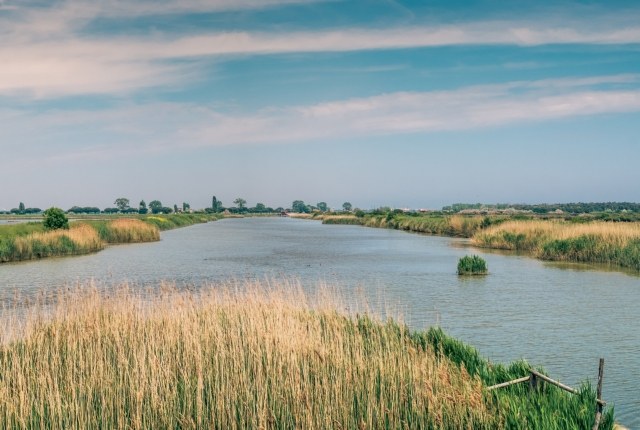From the Nile to the Po, including Mesopotamia, the natural growth of river deltas has supported human progress across the Mediterranean and Asia for millennia. However, these environments are now at risk due to the climate crisis. Without effective mitigation strategies and decisive measures to reduce emissions, delta systems could become inhospitable, ultimately driving humans away.
This warning comes from a review article published in Nature Sustainability by an international team of coastal environment scholars, including two Italian researchers: Alessandro Amorosi from the University of Bologna and Vittorio Maselli from the University of Modena and Reggio Emilia. The article underscores the critical role river deltas have played in socio-economic development over the past 7,000 years and highlights the catastrophic consequences the climate crisis may have on the future of these fragile and complex areas.
"Over millennia, deltas have fostered innovations in water management, subsidence control, and erosion mitigation, creating a profound socio-ecological interdependence between human civilization and these environments," explains Alessandro Amorosi, professor at the Department of Biological, Geological, and Environmental Sciences at the University of Bologna. "However, the increased human pressure and land use in coastal areas over recent decades—driven by exponential population growth and the rise of megacities in many delta regions—have made these systems increasingly vulnerable, posing a serious threat to their survival."
This phenomenon is also impacting Italy, most notably the Po Delta. On the one hand, reduced precipitation and higher temperatures are decreasing freshwater supply, critically impacting water availability for agriculture and urban use. On the other, rising sea levels and diminished river flow exacerbate seawater intrusion, rendering soils less productive and causing severe repercussions for agriculture and biodiversity.
What can be done to address these issues? The researchers stress that without climate stabilization, it will be extremely difficult to preserve delta systems and their associated ecosystems. In the absence of emission reduction measures and mitigation strategies, these areas are likely to face progressive submersion, forcing large-scale migrations to more hospitable inland regions.
"In scenarios of extreme sea-level rise, deltas risk being progressively submerged, making economic development unsustainable and even rendering human habitation impossible. This is already an inescapable reality in certain deltas, such as the Mississippi," warns Amorosi. "The risk is that we may witness the end of millennia of interaction between human societies and delta environments, irreversibly compromising the ecosystemic and socio-economic benefits these territories have historically provided."
The study, titled "Delta Sustainability from the Holocene to the Anthropocene and Envisioning the Future," was published in Nature Sustainability. Alessandro Amorosi, a professor at the University of Bologna’s Department of Biological, Geological, and Environmental Sciences, was among the contributors.

